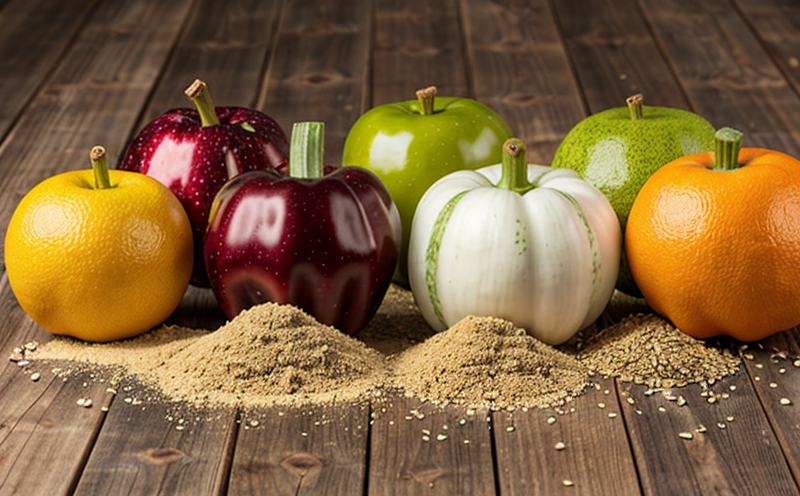ISO 16649-2 E. coli Enumeration in Fresh Produce
The enumeration of E. coli is a critical aspect of food safety, particularly for fresh produce like fruits, vegetables, and grains. This service adheres to the ISO 16649-2 standard which provides robust guidelines for the isolation and enumeration of coliform bacteria in these products.
Fresh produce is a preferred dietary choice due to its health benefits; however, it also poses unique challenges in terms of microbial safety. The presence of E. coli, especially pathogenic strains like O157:H7, can lead to serious foodborne illnesses such as hemolytic uremic syndrome (HUS), which is particularly dangerous for children and the elderly.
The ISO 16649-2 standard ensures that laboratories conducting this test follow stringent protocols designed to minimize contamination risks during sample handling. This includes proper aseptic technique, appropriate media selection, and incubation conditions tailored to optimize E. coli growth while suppressing other microorganisms.
The testing process involves several steps:
- Sampling: Representative samples are taken from the produce at various points in its supply chain to ensure broad coverage of potential contamination sources.
- Pretreatment: Samples may undergo mechanical processing (e.g., homogenization) followed by dilution with appropriate buffers or solutions.
- Culture: Diluted samples are plated on specialized media that selectively encourages the growth of coliform bacteria while inhibiting other microorganisms. This step is crucial for reducing background flora and ensuring accurate enumeration of E. coli.
The standard specifies detailed incubation conditions, including temperature, time, and atmosphere, to optimize the growth environment for E. coli. Following incubation, colonies are counted after they reach a visually distinguishable size on the agar plates. This manual counting method allows for accurate enumeration while maintaining consistency across different laboratories.
Post-counting, results are reported as cfu/g or cfu/100g (colony-forming units per gram), depending on sample characteristics and processing history. Reporting includes all relevant metadata such as date of sampling, method used, incubation conditions, and any corrective actions taken during the process to ensure accuracy.
| Sample Type | Expected Range for Enumeration | Incubation Conditions |
|---|---|---|
| Fresh fruits (e.g., apples) | <1,000 cfu/g | 35°C ± 2°C for 48 hours |
| Leafy greens (e.g., spinach) | >1,000 cfu/g to <10,000 cfu/g | 35°C ± 2°C for 48 hours |
Compliance with ISO 16649-2 is essential for ensuring that produce meets stringent quality and safety standards. This standard helps prevent the spread of pathogens while maintaining the integrity and nutritional value of fresh produce.
Scope and Methodology
The scope of this service encompasses the enumeration of total coliforms, specifically focusing on E. coli, in various types of fresh produce including fruits, vegetables, and grains. The methodology strictly adheres to ISO 16649-2, ensuring accurate and consistent results across different laboratories.
| Test Parameter | Description |
|---|---|
| Sample Collection | Representative samples are collected from different parts of the produce to ensure broad coverage. |
| Pretreatment | Homogenization and dilution with appropriate buffers or solutions as needed. |
| Culture | Diluted samples are plated on agar media selective for coliform bacteria. |
| Incubation | Incubated at 35°C ± 2°C for 48 hours under appropriate atmosphere conditions. |
| Counting | Manual counting of colonies after incubation to determine cfu/g or cfu/100g. |
Eurolab Advantages
At Eurolab, we offer unparalleled expertise in microbiological testing for fresh produce. Our team of professionals is dedicated to providing accurate and reliable results using the latest technologies and methodologies.
- Compliance Assurance: Our services ensure compliance with ISO 16649-2 standards, thereby meeting regulatory requirements and industry expectations.
- Consistency: We maintain consistent results across all samples tested by adhering strictly to standardized protocols.
- Expertise: Our team comprises highly trained microbiologists with extensive experience in fresh produce testing.
Competitive Advantage and Market Impact
Our service offers several competitive advantages:
- Global Recognition: Eurolab is accredited to ISO/IEC 17025:2017, ensuring our services are globally recognized.
- Speed and Efficiency: Our streamlined processes ensure rapid turnaround times without compromising on accuracy.
The market impact of accurate E. coli enumeration is significant in terms of public health protection and consumer trust. By ensuring that produce meets stringent safety standards, we contribute to reducing the risk of foodborne illnesses and maintaining brand reputation for our clients.





